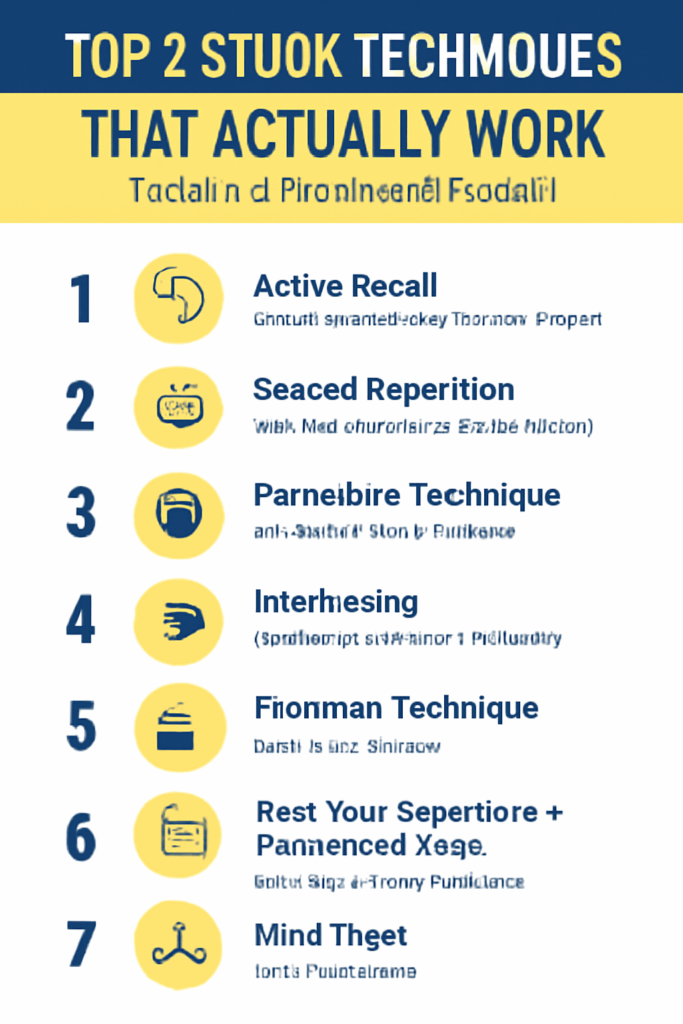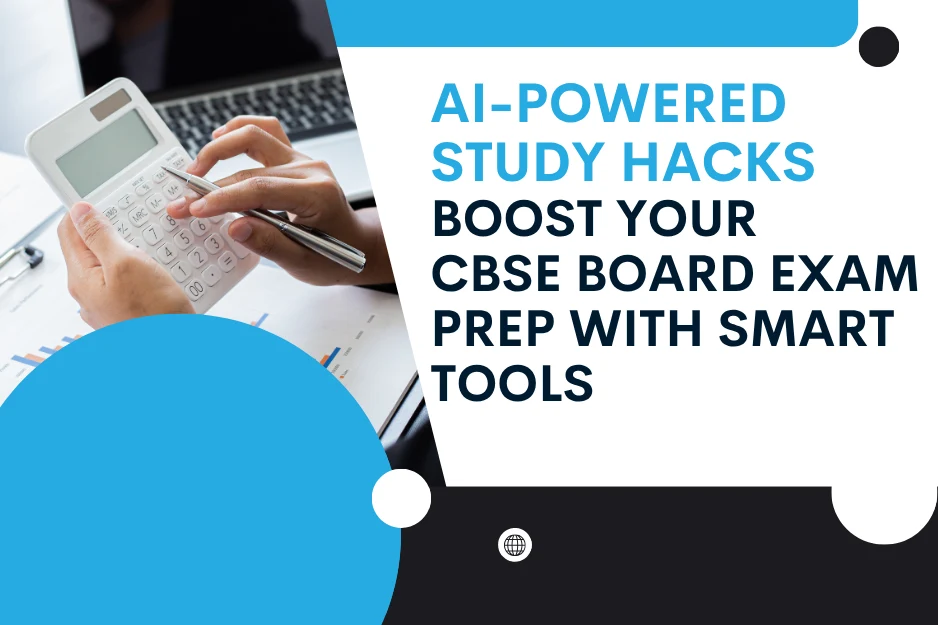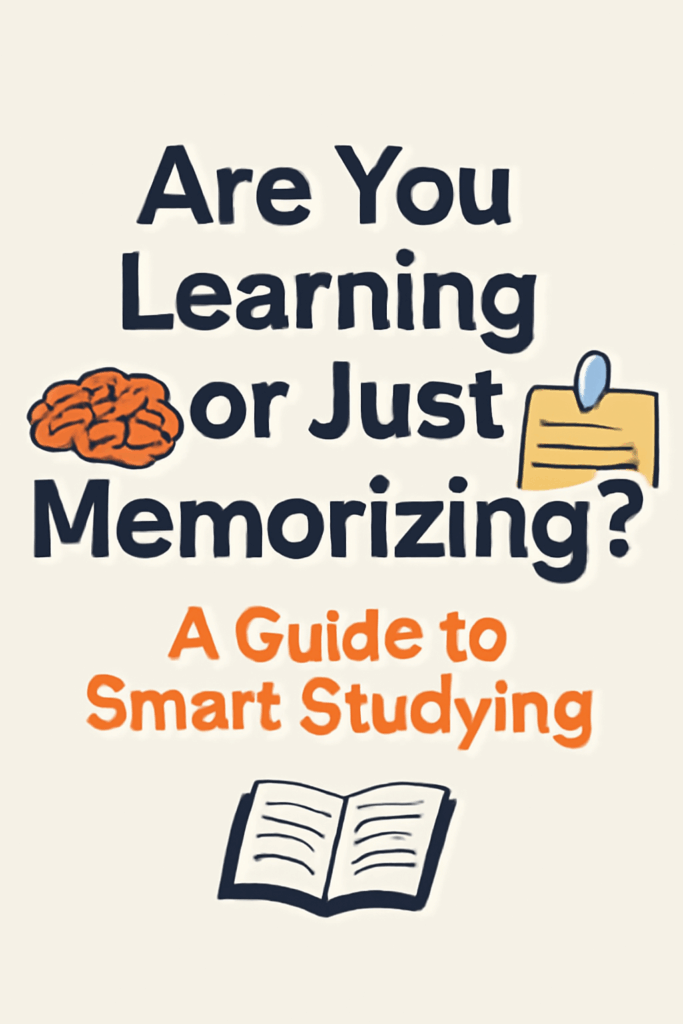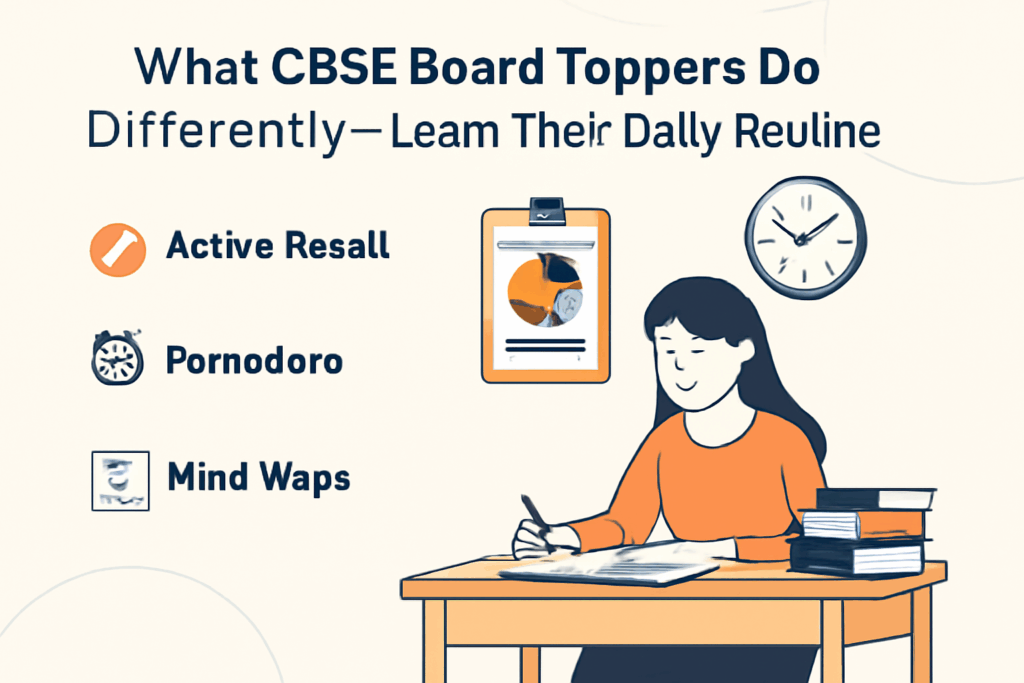Top 7 Study Techniques That Actually Work

(Backed by Science + Trusted by CBSE Toppers)
Are you tired of re-reading chapters but still forgetting answers in the exam? Ever wonder how CBSE toppers remember everything and stay stress-free?
The truth is: it’s not about studying more—it’s about studying smarter.
In this blog, we share 7 proven study techniques that actually work—backed by scientific research and used by CBSE board exam toppers. These aren’t random hacks — they are strategies that help you retain better, revise faster, and stay confident before exams.
✅ 1. Active Recall – Don’t Just Read. Ask. Answer. Repeat.
What it is:
Instead of passively reading your textbook, test yourself on key concepts.
How to do it:
- After reading a topic, close the book and recall what you learned.
- Use flashcards or write your own chapter questions.
- Cover the answer and quiz yourself repeatedly.
🔁 Toppers use this daily with NCERT back questions, PYQs, and diagnostic tests.
🧪 Why it works:
It strengthens your memory pathways. Studies show it’s 2x more effective than re-reading.
✅ 2. Spaced Repetition – Study in Intervals, Not in Marathons
What it is:
Revise the same topic multiple times over a few days instead of cramming the night before.
How to do it:
- Day 1: Learn new topic
- Day 2: Revise for 10 minutes
- Day 4: Quick quiz
- Day 7: Final revision before test
🧠 Use spaced repetition apps or planners.
🧪 Why it works:
The brain forgets new info quickly — spaced revision beats the forgetting curve.
✅ 3. Pomodoro Technique – Study in Sprints, Not Hours
What it is:
A time-management trick to increase focus and avoid burnout.
How to do it:
- 25 minutes focused study
- 5-minute break
- After 4 Pomodoros, take a longer break (15–20 mins)
🔔 Set a timer. No distractions during your Pomodoro!
🧪 Why it works:
Keeps the brain alert and avoids mental fatigue. CBSE toppers use it to finish long chapters like History or Chemistry reactions.
✅ 4. Interleaving – Mix Subjects Instead of Blocking
What it is:
Instead of doing 3 hours of only one subject, mix different topics.
How to do it:
- Study Maths → then Science → then revise Social Science maps
- Solve different types of questions in one sitting (MCQs + case-based + HOTS)
🧪 Why it works:
It helps your brain spot patterns, compare topics, and improve application skills—which is key for CBSE’s competency-based questions.
✅ 5. Feynman Technique – Teach to Understand
What it is:
If you can’t explain it simply, you don’t understand it well enough.
How to do it:
- Pick a concept (e.g., Photosynthesis or Ohm’s Law)
- Pretend you’re teaching it to a younger sibling or a class
- Use simple words, analogies, and drawings
🎤 You can even record yourself explaining it!
🧪 Why it works:
Forces you to identify gaps and truly master the topic.
✅ 6. Past Year Questions + Diagnostic Tests
What it is:
Before revision, test your current level with a diagnostic or previous year paper.
How to do it:
- Use platforms like [diagnosticassessment.in] for topic-wise tests
- Check CBSE Sample Papers and solve PYQs
- Identify your error pattern and improve it specifically
🧪 Why it works:
It shows where you stand now, and helps you plan better. Most toppers solve at least 5 PYQs per subject before boards.
✅ 7. Mind Maps and Visual Notes
What it is:
A visual diagram to quickly recall a full chapter.
How to do it:
- Use one A4 sheet per chapter
- Add key terms, arrows, diagrams, and flowcharts
- Use colors and doodles (even simple ones!)
📘 Use this especially for Science chapters like “Life Processes” or Geography like “Resources”.
🧪 Why it works:
It gives you one-glance revision and helps with memory, especially before exams.
📘 CBSE Toppers’ Bonus Habits:
✔️ Take a diagnostic test before revision
✔️ Use rubrics to self-assess
✔️ Study in study groups with peer discussion
✔️ Avoid late-night cramming
✔️ Stay positive, hydrated, and balanced
🏁 Final Thoughts: Study Smarter, Not Harder
Success in board exams doesn’t come from mugging up everything. It comes from:
- Knowing what to study (via diagnostics)
- Studying the right way (with active recall, spaced practice)
- Revising with intention (not repetition)







Responses